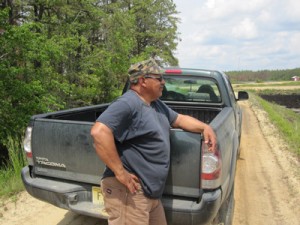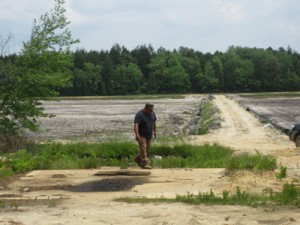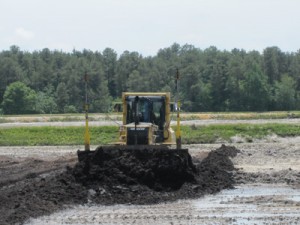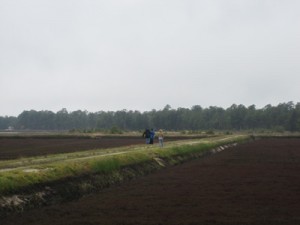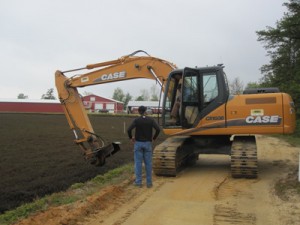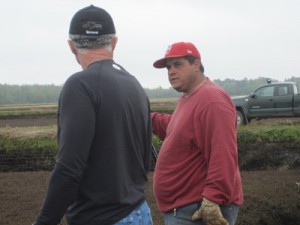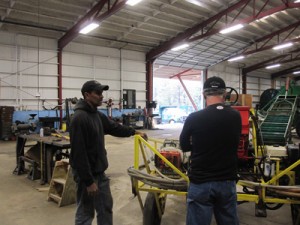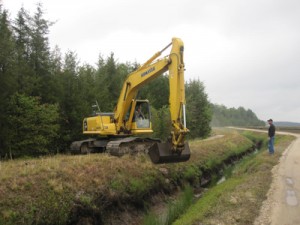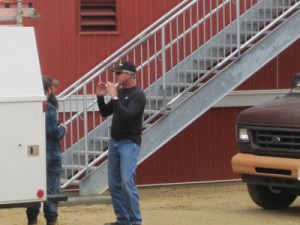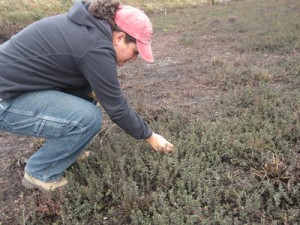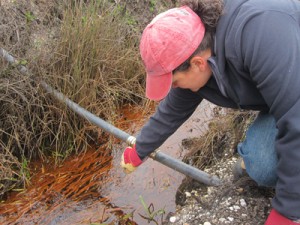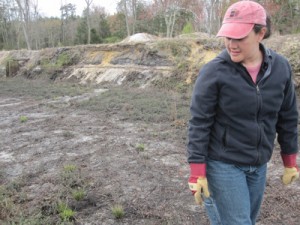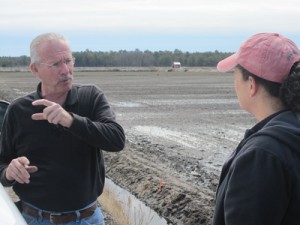This week, we’re profiling our bog renovations manager, Joe Colon, who has been with Pine Island Cranberry for over forty years. Bog renovation is key to our mission: to continue our tradition of excellence by growing more high-quality cranberries at the lowest cost. Joe is in charge of every facet of the program, from planning to moving earth to irrigation installation, right up to the point where the bog ready to plant.
Joe started with us full-time in November of 1971, and has done just about every job we offer (among them ditching, frost management, and even blueberries), with the exception of scouting. Bill Sr took notice of his skills and initiative, particularly with irrigation, and asked him if he wanted to have more of a role with renovations. “I couldn’t say no,” Joe recalls. He ended up working very closely with Bill Sr, and always speaks of him with admiration. “He was patient; a good teacher. Excellent with numbers. . . he could calculate anything.”
Joe believes in having the right tools for the job. One of Pine Island Cranberry’s core values is “continuous improvement” and to that end, Joe says that our constant upgrade of machinery and acceptance and use of new technology makes his job that much easier. “The better technology you have, the more you can get done,” he says.
When asked for his favorite part of the job, he laughs and said, “Everything!” When pressed, he elaborates: “I love it. I love all of it. But especially when we’re waiting for the harvest, when the vines are in and you can see the berries growing. Grading? I’m not satisfied. Planting? Not satisfied. But when that first harvest comes in, that’s when I’m happiest.” He laughs again and says, “That’s when I tell Bill [Jr], ‘these are yours now; I’m turning it over to you’.”

